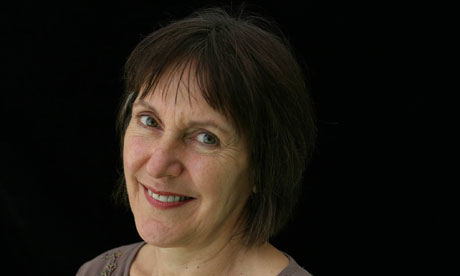
On one level, Marina Lewycka's ambitious new novel is a comic family saga about children and their resentments, and parents and their pride. It's also a financial thriller, which tackles greed and inequality and, characteristically, casts the family as a reflection of the nation.
Doro is an ex-commune-dwelling, former hippy who grows tree seedlings for charity and is finally considering marriage, after nearly 40 years, to the Marxist father of her children. The revolution is long gone: she rushes to M&S to buy new sexy bras, then rushes back to return one when her husband fails to notice. Her daughter, Clara, is a romantically frustrated primary-school teacher in a deprived part of Doncaster, who wants to make a difference. Her brother, Serge, has told the family he's still finishing a PhD in maths at Cambridge, but has secretly taken a job as a quantitative analyst in a City firm. He's also in the process of earning millions through speculative trading on the side, thanks to his illicit access to his boss's secret account.
Doro, the character to whom the author seems most attached, "trundles the Hoover around upstairs… she has free hours at her disposal, hundreds of them. If she strung them all together, she could write a book… Instead, she fills them with housework, which she loathes because it's endless, and cups of tea, which she often leaves undrunk." The trouble is that the novel is in danger of becoming as formless as Doro's days. There are various narrative strands, so if you aren't gripped by one story (the razing of Doro's beloved allotment by developers, perhaps, or Serge's outing as a City worker), you don't have to go back many pages to whatever is of interest – exotic CDOs, maybe, or the history of the non-communist, non-Trotskyist left.
There are zany set-piece scenes, such as the vegetable-carving demonstration on Community Day, which descends into farce when carrots are thrown, people fall on top of one another and buttons pop from blouses. Lewycka is a great humourist who made her name writing comic novels about immigrants to Britain: A Short History of Tractors in Ukrainian and Two Caravans include strong characters who express themselves in entertaining hybrid English. Here, though, her characters – including Doro's adopted daughter Oolie, who has Down's syndrome – sometimes teeter towards caricature.
Lewycka's sharpest observations appear when she adopts the perspective of an outsider, as when she describes, in Two Caravans, what Dover looks like to a new arrival just off the ferry: like Donetsk, in eastern Ukraine. There's not really scope for that sort of thing here.

